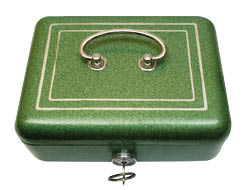:dropcap_open:W:dropcap_close:hen comparing the amount of time it takes to get paid from insurance carriers versus cash-paying patients (on auto-debit plans), there are some factors you need to consider. First, if you look at the number of boxes on a CMS-1500 claim form, there are approximately 60 fields, which means there are 60 opportunities to get it right, or 60 ways to get it wrong. One of the major reasons for claim delays/denials is incomplete and inaccurate patient information. Spelling errors, the wrong birthdate, and transposed numbers are just a few of examples of why a claim can be denied. In some cases the errors may not even be your fault. In fact, the average error rate by carriers for claims processing is 20%. Therefore, if you send out 100 insurance claims every month, you can almost guarantee that 20 of them will be processed incorrectly. Regardless of who is at fault, errors will cause a delay in payment, or even worse, a denial altogether. Cash plans and monthly auto-debits are simple and straightforward with virtually zero error rate, no waiting time for payments, and guaranteed monthly revenue.
 In addition to the possible mistakes that can be made on the CMS-1500 claim form, you have to consider what potential problems can arise after you have verified a patient’s insurance coverage and benefits. Even after all the correct steps have been followed carefully in the verification process and you have received a verbal and written explanation of benefits, claims can still be denied for payment due to an error on the carrier’s part. When you are accepting an insurance assignment and mistakes happen (e.g., errors in copays or deductible amounts, etc.), if it is discovered that patients actually owe more than what they were told they owed and have already paid (as the result of misquoting benefits), chances of collecting are often slim. Moreover, it can leave patients with a negative reminder of your financial policies. It sometimes becomes a vicious cycle. It can take weeks to discover if the carrier misquoted benefits and as a result, insufficient (wrong) amounts were collected from the patient. This is one reason why the carrier continually reminds us during every step of the verification cycle that “benefit details are not a guarantee of payment!”
In addition to the possible mistakes that can be made on the CMS-1500 claim form, you have to consider what potential problems can arise after you have verified a patient’s insurance coverage and benefits. Even after all the correct steps have been followed carefully in the verification process and you have received a verbal and written explanation of benefits, claims can still be denied for payment due to an error on the carrier’s part. When you are accepting an insurance assignment and mistakes happen (e.g., errors in copays or deductible amounts, etc.), if it is discovered that patients actually owe more than what they were told they owed and have already paid (as the result of misquoting benefits), chances of collecting are often slim. Moreover, it can leave patients with a negative reminder of your financial policies. It sometimes becomes a vicious cycle. It can take weeks to discover if the carrier misquoted benefits and as a result, insufficient (wrong) amounts were collected from the patient. This is one reason why the carrier continually reminds us during every step of the verification cycle that “benefit details are not a guarantee of payment!”:dropcap_open:There is no waiting for payments, no follow-ups, no fighting, no appeals, and no demands for payment.:quoteleft_close:
In addition, all of the administrative time spent chasing after the ever-elusive insurance dollar becomes costly to the practice. More and more chiropractic offices spend too much valuable time each day calling on claims that should have been paid accurately on the first submission. A simple way to eliminate these obstacles and opportunities for errors is to implement more cash plans into your practice.
Cash plans and auto-debits are straightforward, simple, and quite often the best option for both patients and your practice. There is no waiting for payments, no follow-ups, no fighting, no appeals, and no demands for payment. Your office staff will be free to spend more time educating patients on the benefits of wellness care, more time promoting and growing the practice, more time doing constructive office tasks, and less time trying to pry those jealously guarded insurance dollars away from the carrier. Most importantly, patients will know their financial obligation (without any surprises) and with the ease and convenience of auto-debits, the benefits far outweigh the risks on every level.
Dr. Bodzin is the Founder and CEO of Cash Practice Inc, a web-based company that provides The 4-Step Process for Freeing You From The Shackles of Insurance Dependence. The Wellness Score, Cash Plan Calculator, Auto-Debit, and Drip-Education Email Systems give the practicing chiropractor tools for implementing the four steps to freedom. Dr. Bodzin speaks internationally on running a cash-based practice for Associations, Parker Seminars, Philosophy Groups and for many of the coaching companies. Dr. Bodzin can be reached at 1-877-343-8950, [email protected] or by visiting www.CashPractice.com.
